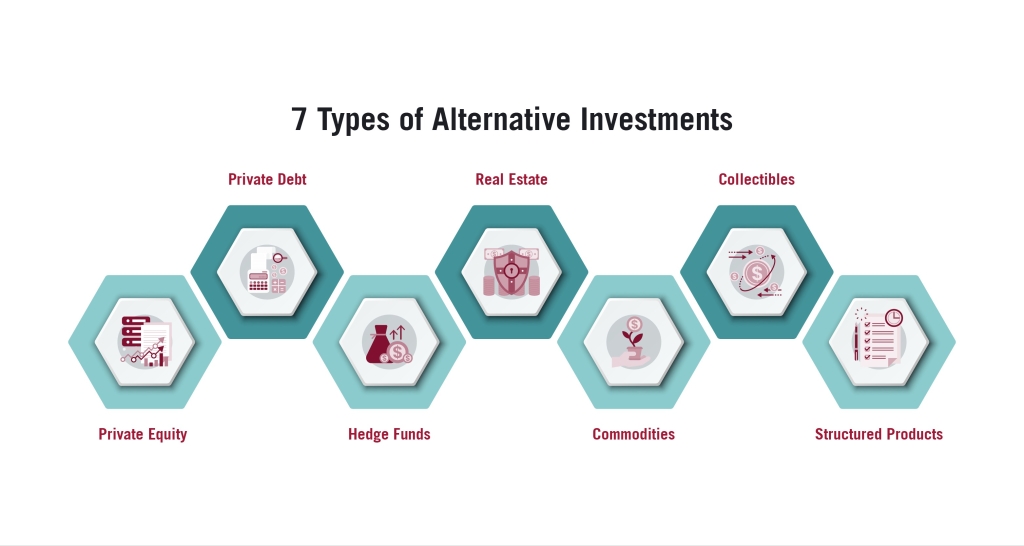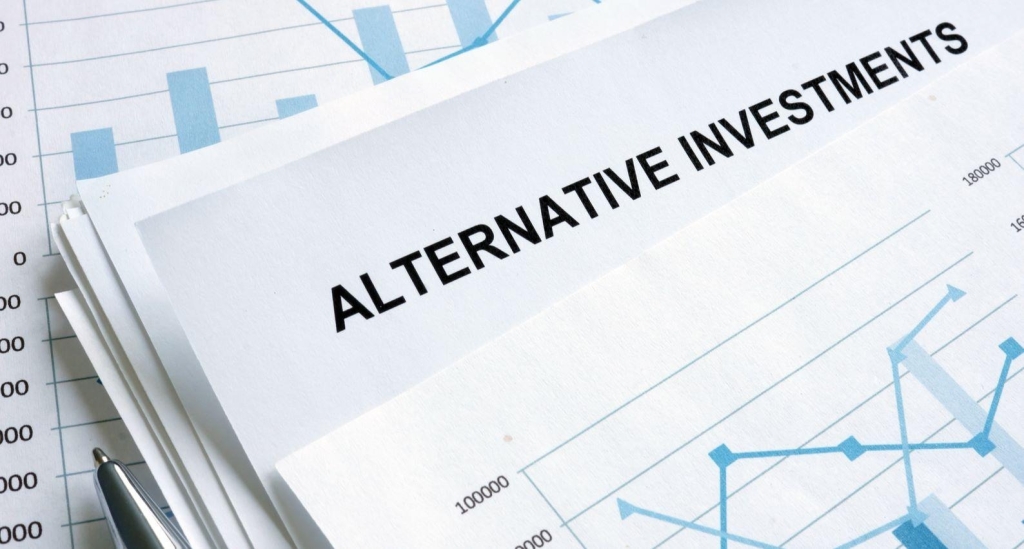
Explore Alternative Investments Plan
What is an alternative investment?
Alternative investments or alts are assets such as cryptocurrency, options, direct investments, real estate and art objects. Alternative investments are generally defined as investments that are used in addition to stocks, bonds, mutual funds and other investments that traditionally form the basis of a portfolio.
Although the classification of “alternative investments” includes many different types of investments, most of them have several common features: many alternative investments are less regulated by the US Securities and Exchange Commission (SEC) than traditional investments, are generally more difficult to sell and may not have a high correlation with other types of investments. Fund market. This means that if the overall market falls, it does not increase the likelihood that your alternative assets will also fall.

Another common feature is that they tend to be associated with greater risk than traditional investments. All investments should be approached with the utmost care, but the violas deserve special care. One recommendation is to invest no more than 10% of your entire investment portfolio in higher-risk investments.
How to buy alternative investments
There are several ways to invest in alternative investments, which are discussed here, but buying alts usually boils down to one of three options: buying the asset itself, investing in a company that invests in the asset or is involved in its production, or investing in a fund that owns a large number of these companies. For example, you can buy raw gold, shares of gold-related companies or a gold ETF.
If you want to buy altas yourself, this can be more difficult than buying traditional assets. While some altas can also be purchased from a broker, others, such as futures and Forex, usually require a special account. Cryptocurrency can be found on crypto exchanges, crowdfunding in real estate can be accessed through separate platforms, and collectibles are often bought at auctions or private sales.
If you want to access an alternative through a stock or fund, you must have a brokerage account for this.
7 alternative investments to consider
Here are seven alternative investments that are worth exploring.
1. Derivatives
2. Digital Assets
3. Precious metal
4. Collectibles
5. Raw materials
6. Real Estate
7. Direct investments
1. Derivatives
Derivatives are investments that are tied to an underlying asset, commodity or index. There are several types of derivatives, including futures and Forex.
Investing in derivatives can often involve complex strategies. If you want to try some advanced trading strategies, you can practice trading on paper before risking your real money.
2. Digital Assets
Digital assets such as cryptocurrencies and non-exchangeable tokens (NFT) are supported by blockchain technology.
Cryptocurrency

Cryptocurrency is a form of digital currency. There are many different cryptocurrencies such as Bitcoin or Ethereum. You can use a cryptocurrency to pay for goods, as would be the matter with a conventional currency, or you can use it as an investment by buying it in the hope that its value will increase over time (like virtually any other investment).
If you want to buy a cryptocurrency directly, there are several ways to do this. Some online brokerage offices allow you to purchase cryptocurrency through them.
3. Precious metal
Unlike many investments on this list, precious metals such as gold and silver have been considered valuable from time immemorial by mankind. This is especially useful because you can estimate your costs over a longer period of time. Precious metals can also sometimes serve as protection against inflation in a well-diversified portfolio.
There are several ways to invest in precious metals. You can buy the metal yourself, usually in the form of ingots (such as ingots or coins) or jewelry. Ingots can be tempting – who doesn’t want a pile of gold bars or necklaces lying around? But it’s hard to store and sell. You can also invest in gold stocks or other valuable metals or in gold ETFs.
4. Collectibles
Investing in collectibles such as plonk or fine art presents many difficulties when investing in precious metals: they can be difficult to secure and store, as well as to sell. If you don’t have good connections in any collecting industry, it can be difficult to find a buyer for your antique sculpture or a vintage oil car when you are ready to make money.
5. Daily necessities
Raw materials are unprocessed body foods such as oil, wheat, gold or corn. Commodity investments may partially coincide with some of the other categories listed here. For example, you can invest in commodity futures contracts or buy precious metals, which are technically essential goods. You can also buy commodity stocks or commodity ETFs.
6. Real Estate
There are several ways to invest in real estate, including REITS or real estate funds, by using the platform to invest in real estate or purchase real estate.
REIT
Reits are similar to mutual funds in that they are companies, but they specifically own, operate, or finance low-income properties such as apartment complexes that bring rents. Reits must pay out at least 90% of their taxable income to shareholders in the form of dividends, which creates a potential source of income for investors. As with stocks, you can purchase listed REITS through a brokerage account.

Platforms for real estate investments
Real estate crowdfunding investment platforms have made real estate investments much more affordable for the average investor. These platforms combine your money with the money of other investors so that you can get access to private REITS and private real estate investments, which in the past were only available to accredited investors (although some of these platforms are also only accessible to accredited investors).
7. Direct investments
Direct investment is exactly what it feels like, that is, the capital that comes from private investors. In general, the only way to get access to private investments is through a private investment company, and the investment is often only available to accredited investors who can make very high minimum investments.








Leave a Reply